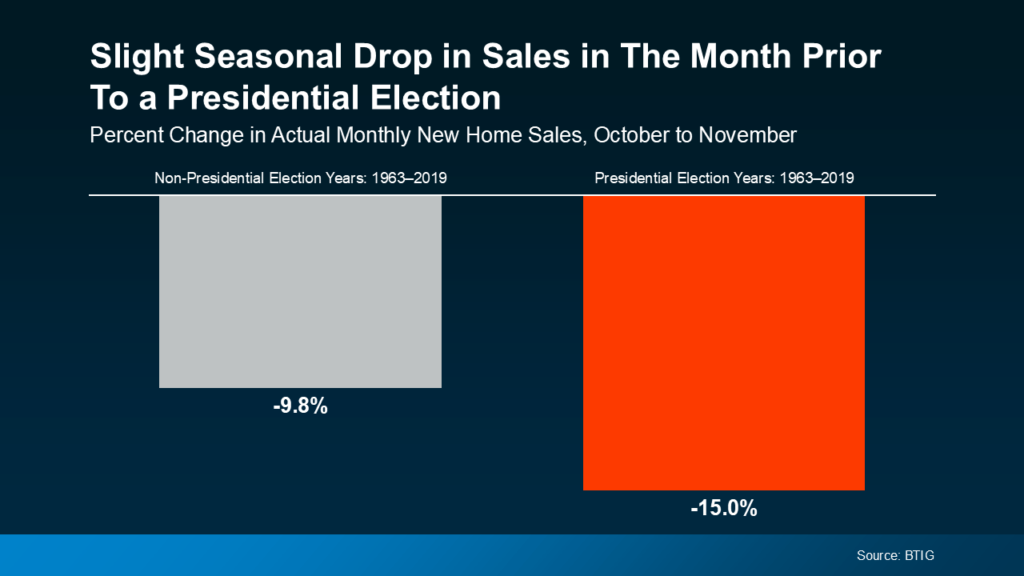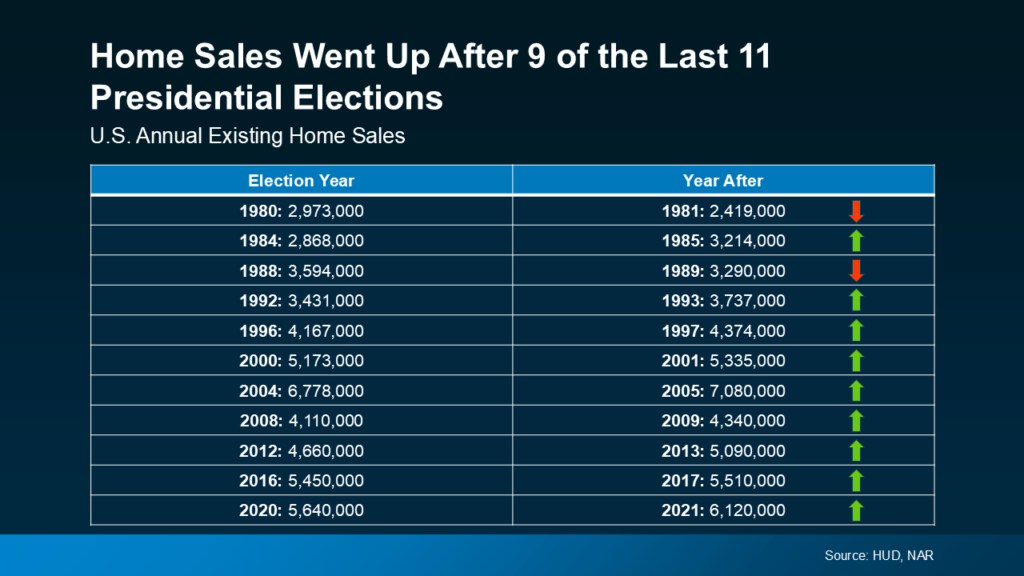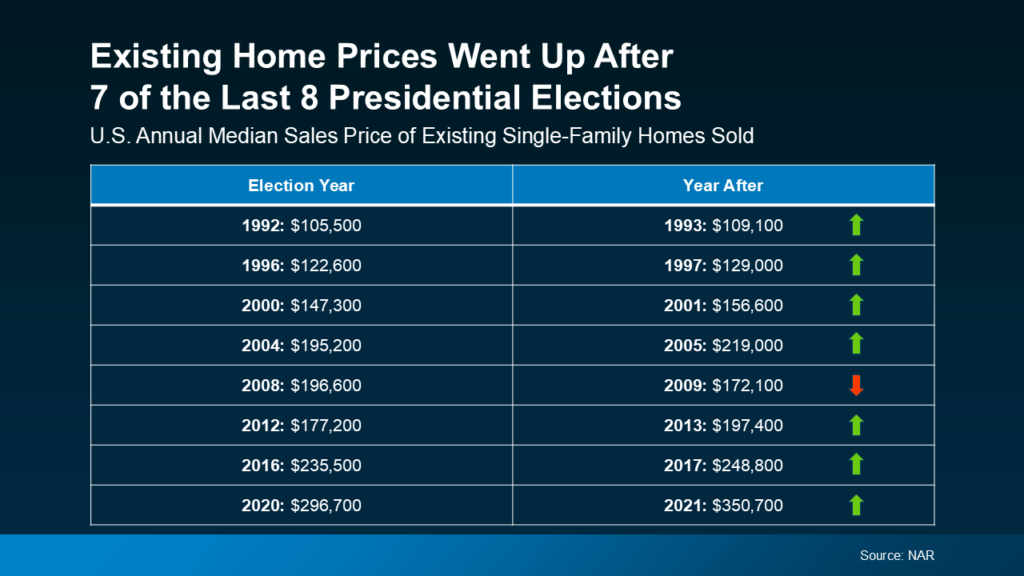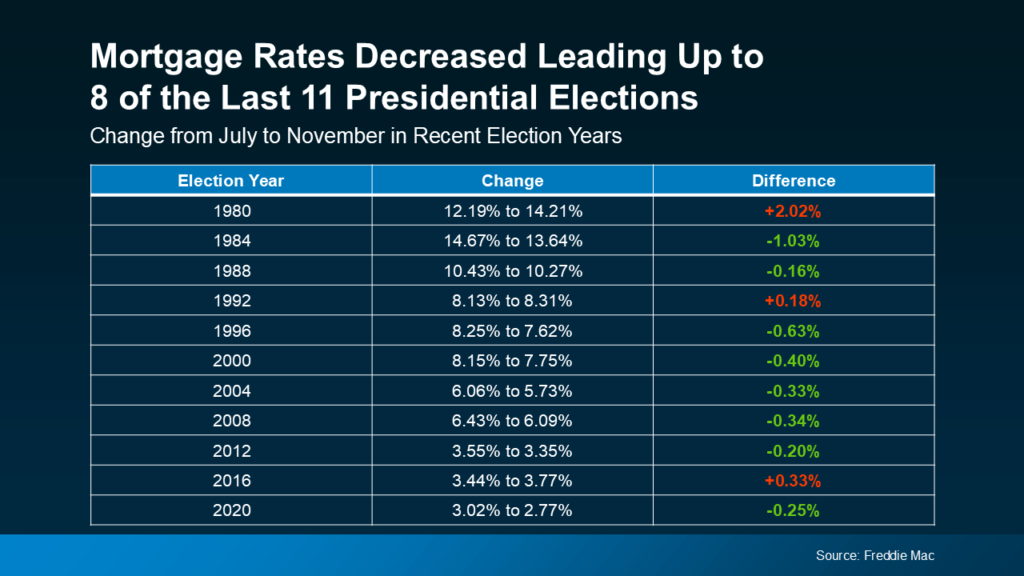
As the Presidential election approaches, it’s natural to wonder what lies ahead. These unanswered questions can lead to worry and uncertainty, especially if you’re thinking about buying or selling a home. You might be curious about how the election could impact the housing market and whether it’s still a smart time to make your move.
Here’s some reassuring news: historically, Presidential elections have had only a small, short-term effect on the housing market. However, it’s important to address your concerns so you can continue with your plans confidently.
Take a look at decades of data that reveal how home sales, prices, and mortgage rates have behaved during past Presidential election cycles. With these facts, you’ll be better equipped to make an informed decision about your homeownership journey.
Home Sales
In the month leading up to a Presidential election, typically from October to November, there’s usually a slight dip in home sales (see graph below).

Some buyers might choose to hold off on their decisions until after the election. However, it’s important to understand that this slowdown is usually minor and short-lived.
Historically, home sales tend to rebound quickly and even increase the following year.
In fact, data from the Department of Housing and Urban Development (HUD) and the National Association of Realtors (NAR) reveals that after 9 of the last 11 Presidential elections, home sales have risen in the year after the election—a trend that has remained consistent since the early 1990s (see chart below).

Home Prices
You might also be curious about what happens to home prices during election years. Do they typically decrease? The answer is no. As residential appraiser and housing analyst Ryan Lundquist explains:
“An election year doesn’t change the price trend that’s already in motion in the market.”
Home prices generally continue to rise over time, regardless of the election cycle. So, based on historical trends, you can expect the current pricing pattern in your local market to persist, unless there are unusual market or economic factors at play.
Recent data from the National Association of Realtors (NAR) shows that following 7 of the last 8 Presidential elections, home prices have increased in the subsequent year (see chart below).

The one exception was from 2008 to 2009, during the peak of the housing market crash—a year far from typical. Today’s market is much more robust. While prices are stabilizing across the country, they’re not in a general decline.
Mortgage Rates
Another concern you might have is mortgage rates, as they directly affect your monthly payments if you’re financing a home. Looking back at the past 11 Presidential election years, data from Freddie Mac shows that mortgage rates decreased from July to November in 8 of them (see chart below).

And this year, we’re already starting to see that trend emerge. Most experts predict that mortgage rates will ease slightly throughout the rest of 2024. If that happens—and current indicators suggest it will—this year is likely to continue the pattern of declining rates. This could be great news for your purchasing power if you’re planning to buy a home in the coming months.
What This Means for You
So, what’s the bottom line? While Presidential elections can have some impact on the housing market, the effects are usually minimal. As Lisa Sturtevant, Chief Economist at Bright MLS, notes:
“Historically, the housing market doesn’t tend to look very different in presidential election years compared to other years.”
For most buyers and sellers, the election doesn’t significantly alter their plans.
Bottom Line
It’s natural to feel a bit uncertain during an election year, but history shows that the housing market remains strong and resilient. This means you don’t need to put your plans on hold. If you need guidance navigating the market during this election cycle, let’s connect.




